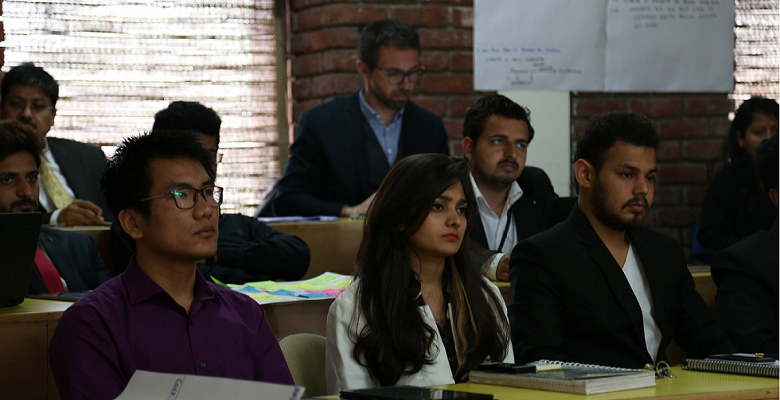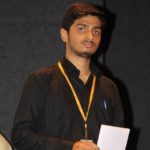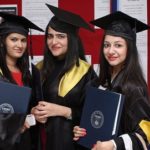On Day 2, while the first session of the 5th International Conference at IILM, one of the top MBA colleges in Delhi, was focused on policies and reforms to make education truly sustainable, the last one on ‘Sustainability Practices & Quality Education’ emphasized more on the implementation of the same.
In line with UN’s Principles of Responsible Management Education (PRME) initiative that ties up leading business schools to the idea of imparting education that shapes responsible business leaders of tomorrow, the session explored the creation of such leadership within business colleges in detail. Many excited students took a cursory break from their MBA courses to attend this session.
Coordinated by Prof Rajkishan Nair, and supported by Prof Sanchita Ghosh, the session began with a talk by Dr. Onyebuchi Felix Offodile, Department Chair – Professor Department of Management and Information Systems, Kent State University, USA. In his insightful dialogue with the audience, Dr. Offodile emphasized on the necessity of educating school children on sustainability practices because they are the ones who will inherit the world from our generation. Since the future generations are already sensitized to technology and innovation, inculcating ideals of sustainable development becomes very easy. His presentation informed the audience in detail about the concept of sustainability, the UN Sustainable Development Goals, why shunning technology is not the answer to rising environmental degradation, and how collaborative strategies by governments, societies, and corporates help us restore our planet to a healthy state.

“The whole essence of sustainability is encapsulated in the question of how do we leave the earth better than when we inherited it. The answer to it lies in the education of young children,” remarked Dr. Offodile.
The next speaker was Ms. Dilreen Kaur, Director, Ritinjali, who revitalised the audience with a quick activity of creating noises by rubbing palms and snapping fingers. Later on, she displayed the success stories from her non-profit organisation which provides a helping hand to marginalised individuals and societies in the form of schooling, education and skill development. The crux of her talk revolved around the fact that equal and quality education for everyone is an important step towards achieving sustainability.
“Ritinjali ensures that responsible citizens are created from the most impoverished and disadvantaged societies so that they give back to their community and to the environment in general. This aligns us with UN’s Sustainability Development Goal 4 of quality education for all,” stated Ms. Dilreen.
The third speaker in the line-up was Dr. Nidhi Sirpan, Associate VP, Public Sector Business, Smart Class Educational Services. In a nutshell, she talked about two vital parameters in quality education: conceptualization and objectification, and also shared her experiences in the field with the audience. She also spoke of the intricate connection between employability of graduates, creating more jobs, providing necessary training programs to corporates, and sustainability.
“How we, as corporates, can look back to and derive benefits from academia to give back to the society is important for sustainability,” Dr. Nidhi concluded.
The session was concluded by Dr. Rania Mohy El-Din Nafie, Professor, School of International Business Management, Seneca College, Canada who highlighted important practices for innovation in education and also spoke about the role of organizational behavior in sustainable development. Her address postulated that in order to have innovation in sustainable education, there is a need for knowledge-sharing amongst various stakeholders like employees, teachers, students, parents, and industry experts.
“We have to start thinking of the educational institutions as an organization that is an ecosystem that thinks, learns, and has to innovate in order to remain competitive and sustainable,” professed Dr. Rania.
Thereafter, there was a round of questions for the panel followed by a round of applause for all the brilliant ideas on what the education sector needs to do in order to achieve sustainable development goals successfully.




